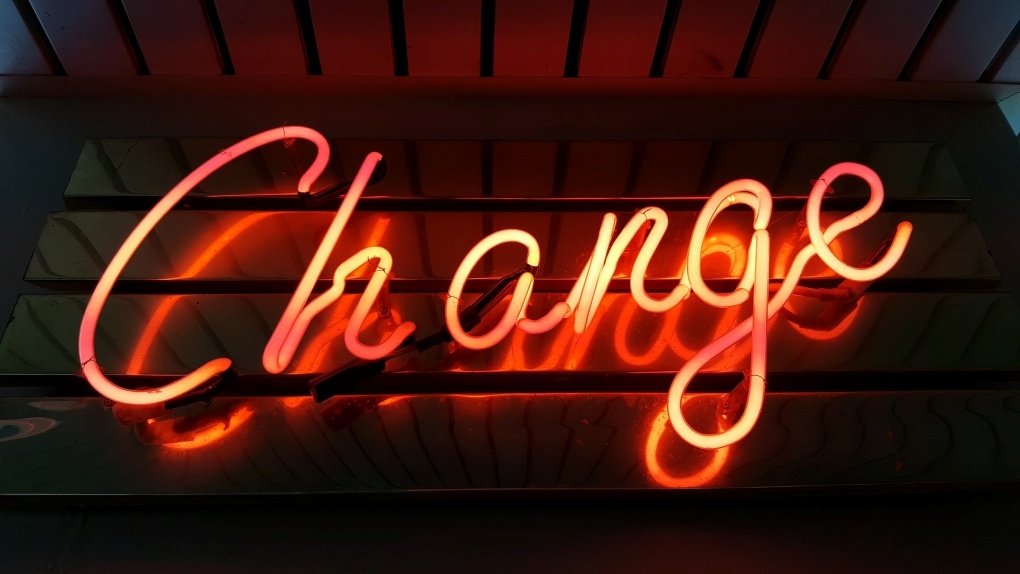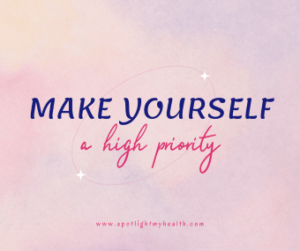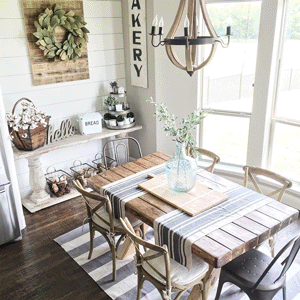Good habits can change your life, but we need to know the difference between good and bad habits. Habits are both good and bad, positive and negative and they all affect our lives and play a big part in determining the quality of our lives.
By letting go of our bad habits and creating more positive ones, we can really change our lives. We become more confident, healthier and we can accomplish goals that we may have set for ourselves.
How Do Habits Work?
People’s habits have been scientifically studied for many reasons. Habits have power over our lives psychologically, neurologically and they affect our physical and mental wellbeing. They are actions or behaviors that we do on a regular basis, many times without even thinking about what we are doing.
For instance, you probably have specific behaviors that you do first thing in the morning before you start your day. A routine that you automatically start to do after getting out of bed.
You probably head right to the bathroom where you might use the toilet, take a shower, shave (if male) and brush your teeth. After that you probably get dressed then head to the kitchen for a cup of coffee or out the door where you’ll stop and get your first cup of coffee for the day.
Your morning routine may have more or less behaviors involved, but each of us do something in the mornings that could come under the heading of “routine.”
According to James Clear, author of “Atomic Habits,” all habits start as part of a psychological pattern. Our morning routine would fall under that pattern since we do our morning behaviors automatically, without thinking of them. Mr. Clear calls this a “habit loop.”
Components of the Habit Loop
In his book, James Clear, uses neuroscience and psychology to help us understand that a habit loop is basically made up of four components which are:
Cues: A trigger that causes our brain to start a behavior. This cue causes our brain to think “oh boy, here comes a reward.” That’s when the craving starts, and we usually respond to these cues without thinking about it.
Craving: This is where our motivation comes into play. It’s the force behind our habits and without this motivation or craving we’d do nothing. There would be no reason for us to respond.
Response: This is the thought you have or the behavior you perform in response to the cue and craving. In essence, it’s your habit. The response happens if you are capable of doing so, if you have enough motivation to act and if you have no obstacles to stop your response.
Reward: Who doesn’t like a reward? It’s the reward that caused your brain to perk up when you recognized your cue/trigger. This is the last stage of the habit loop and is the end goal of every single habit, both good and bad.
Receiving that reward solidifies the habit in your brain and will cause your brain to continue the cue association with the reward. The habit loop has completed its cycle.

The Habit Loop At Work
Let’s use night-time snacking as an example. Your day is basically finished, and you see it’s time for your favorite TV show. You sit down, get comfy under your afghan and within minutes your favorite show comes on. (cue/trigger)
It doesn’t take long after that for your brain to start thinking how good some popcorn or ice cream would be. (craving) You go back and forth with the idea trying to decide what you really want, knowing that you really aren’t hungry and that you shouldn’t be eating junk this close to bedtime.
So, you tell yourself you can get through the show without eating anything, but within 15 minutes you go into your kitchen spoon out a bowl of ice cream to have while finishing your show. (response)
You forgot you told yourself no, because the craving became too much, which motivated you to get your snack. Looking at the bowl after eating the ice cream you think that was just so damn good and satisfying. Emmmm, emmmm, good.
Then you turn back to your show, thereby closing the habit loop without even realizing what you just did.
This four-step “habit loop” process is very important in understanding how habits are created and why we do what we do. The trick is to fall prey to more good habits rather than bad ones. Doing so can dramatically change your life.
The habit loop cycle is a power than can help us control our own self-management and behaviors, thereby changing our lives. But without being aware of our cues, for our habits, there’s almost no chance of changing the habits we want to get rid of.
What Is A Good Habit
Once we understand how a habit works and figure out what good habits we want to keep or develop we can change our lives for better physical and mental wellbeing. You’ll become healthier, more confident, and probably a more successful person.
Ever hear of a keystone or cornerstone habit? These are what is considered foundational behaviors. And foundational behaviors can be used to create a cluster of good habits that you may want to develop.
Keystone habits are core behaviors, that once established, can start a chain reaction toward new and positive changes in your life. And chances are these new habits will help you achieve goals that you have set for yourself. These core habits can be used to help you create other good habits that you may want to develop.
Single Most Important Keystone Habit
Author Charles Duhigg states that “dozens of studies show that “willpower” is the single most important keystone (core) habit for individual success.
According to a 2005 University of Pennsylvania study found that students with stronger willpower were more likely to get better grades and then be admitted into more selective schools.
“Highly self-disciplined adolescents outperformed their more impulsive peers on every academic-performance variable,” said the researchers. “Self-discipline predicted academic performance more robustly than did IQ.”
And other studies show that when someone improves their willpower in one area of the life, good habits then spill over into other areas of their life.
For instance, as going to the gym and eating better foods become a keystone habit, then you start managing your budget better than you have in the past. You want to continue that feel good feeling in other areas of your life.
This is because as you turn something you do into a cornerstone habit you actually change your way of thinking. And you get better at controlling your impulses. You learn how to distract yourself from temptations. This is your willpower at work.
Once your brain gets used to using willpower to your advantage, your brain has become practiced at focusing on the goal it’s been given to achieve.
Willpower Is Like a Muscle
Because willpower is like a muscle, continued use will make it stronger. And how do you do that? Through habit! Automate and repeat the habit of willpower and you’ll strengthen that willpower. It’s like a circle.
How do you get willpower to become a habit? By choosing a specific behavior ahead of time, make a plan on how you want that behavior to become a keystone habit and then use your willpower and motivation to make the plan become a routine.
The plan should include how to bypass a “trigger” or inflection point when one hits.
Having things figured out ahead of time will make it easier grow your willpower.

Something to Remember About Good Core Habits
These core habits are not meant to lay the guilt on thick if you miss doing the habit on occasion. Instead, just pick yourself up and start the repetition again and move on.
A keystone habit isn’t the end all and be all to your life, but rather something to help you feel good about yourself. And there isn’t really an indicator of success for habits, except maybe the “feel good” feeling you get from good habits completed. Something that is known is that focusing on one habit at a time will certainly increase your odds.
Good Habits vs Bad/Annoying Habits
Because not all habits are created equally, they don’t all make the same impact on your life. While a good habit is deemed a positive in your life, a bad habit definitely impacts your life differently. A bad behavior that is done repetitively can cause huge negative consequences in your life. Some may be relatively harmless while others can have long term effects on your life.
Because many of our habits are formed without us realizing what is happening, it can be difficult to know which of our behaviors/habits are good and which are bad.
There are some things you have to think about to help determine if your habit is good or bad for you. You need to do some serious thinking about the effects of a specific habit on your life. Begin by asking yourself these questions about one habit at a time.
**Do I feel I have control over this behavior?
**Is this behavior affecting my mental wellbeing?
**Does this behavior affect my physical wellbeing?
**How does this habit make me feel?
**Does this habit only make me feel good right at this moment or will it have long-term effects on my life?
**Do others seem to notice and react to this behavior? Was that reaction positive or negative?
Once you have decided that a particular behavior can be ranked as a good or bad habit, it’s time to start thinking about breaking the bad habits. To do that you need to rewire your brain. And that takes a lot of time, patience and perseverance (or willpower, if you prefer).
Bad Habits to Work Toward Getting Rid Of
Bad habits are considered the habits done repetitively that have negative consequences for you. They may seem harmless, but many can make a deeper, long-term impact on your life. Let’s look at some behaviors that most of us would consider bad and would want to change.
Think about a bad habit this way: if you see someone else with this behavior, do you get warm and fuzzy feelings or is your first thought “ughhhh?” This is a quick way to determine good or bad habit. Which way do you feel about the following behaviors?
*Poor eating habits, like chewing with your mouth open
*Every other word a swear word
*Spitting, anywhere
*Overthinking and worrying
*Starting/ending each sentence with “ya know”
*Talking loud enough on your cell phone in public that everyone around you can hear your conversation
*Not washing hands after using the bathroom
*Gossiping or judging others
*Complaining or speaking about your life in negative terms all the time
*Rolling your eyes
*Lying
*Interrupting the conversation
So how did you do? See yourself doing any of these? I know I did when I thought about it and there are at least two things on this list, I’m working on stopping.
Changing these habits is important because they either affect your life or your relationships with others. These types of bad habits don’t just affect you, but others around you. This can cause you to lose friends and/or co-workers to stay away from you.
Now let’s look at some habits that we may want to keep on doing.

Good Habits To Think About
Good habits are repetitive actions that you want to continue repeating because they have a positive effect for you physically, psychologically and emotionally.
Self-care: It’s important to take care of yourself, physically, mentally and emotionally by doing some of the following:
**Get enough sleep
**Journal
**Create a morning routine
**Eat healthy and move
**Shut technology down a few hours before bedtime
**Create a personal mantra, for yourself, to recite any time you need to hear it.
**Set boundaries for yourself and others
**Learn something new
**Do bodywork—by this I mean start meditating or doing yoga. Have a massage or Reiki session or practice reflexology. All these help relax your body
You can develop habits for all areas of your life. I just gave you some ideas for self-care which is a pretty good place to start. Other areas of your life could be happiness, relationships, productivity, and career. I suggest starting with self-care because this is your foundation and will help you be better able to handle the other parts of your life.
How to Create a Good Habit
Now let’s look at how we can start working on and developing the types of habits we want to affect our lives more positively.
Before you can start working on creating a good habit, you have to stop and ask yourself a few questions. Because habits can be good or bad and be completed on autopilot, it can be hard to determine which are good and which are bad.
Remember above Under Good vs. Bad Habits there were questions that I suggested you ask yourself? If you didn’t think about those questions then, give it a go now.
We have to know the difference between a good and bad habit before we can start working on developing good ones. We have to think of the effects on your life of each habit you are looking at.
Think about the next six months and ask yourself and answer the following questions:
**What one good habit would you like to work on the next six months that would help you reach a goal that you have for yourself?
**What is one important thing that you would like to develop during the next six months that could greatly improve your life or your health?
You may need to take a week or two to actually give these questions the attention they need and that’s ok. During these couple of weeks, pay attention to things that give you a feeling of accomplishment that carries throughout the rest of your day.
Take Note of Small Wins
Keep a list of “small wins” each day so that by the end of the week you can see if anything repeats itself and made you feel good the longest. This could be your keystone habit that can be used to develop other habits you want to work on.
You should now be able to see which of your “feel good repeats” could be a cornerstone habit, and then make it one. It can be tough, at first, to continue something that you don’t feel like repeating again and again.
What you have to do is remember how that “feel good repeat” made you feel and how good it felt to accomplish it. And then you repeat that action again and again. Slowly your “repeat” will be something you just do without thinking about it.

10 Techniques to Help Develop a Good Habit
**Make the decision to move forward with the behavior that you want to develop.
**Start small and work on only one habit at a time.
**Take it slow. If it is a big behavior or something complicated, break it down into bite sized pieces and work on one piece at a time.
**Determine your motivation and why you want to develop the habit.
**Is there a cue that makes you think of the habit that you are trying to incorporate into your life.
**Use visualization if possible.
**Go public if that helps you. Ask for help from friends and family.
**Make up a positive affirmation about your habit that you are creating and recite the affirmation any time you feel the need.
**Be persistent. Once all these things are figured out, put them into action and don’t turn away from the cue/trigger at any time. Follow through with the required habit you are creating.
**Don’t forget about the habit loop. At the end there should be a reward that solidifies the desired habit in your mind. Figure out the reward ahead of time.
Actually, if you can figure out what you want to do at each of these steps, you’ll know exactly what to do when you see your trigger.
Practice, practice and more practice. After you get started on a habit, try and always keep it in mind. Repetition it what will make your behavior become a bona fide habit.
Research has shown that when a positive habit is done over and over, it becomes easier to continue. When the habit becomes a keystone habit and then repeats on automatic, it sets you up for more and more feelings of goodness. These feelings can become chain reactions that help other good habits take hold.
Final Thoughts On Good Habits
I’ve got my own change of habit going on right now. Many of you know that I’ve been working on losing weight this whole year. I’ve hit a plateau that has made me come to realize I need to change my eating even more than before.
So, I’ve put some things into action to hopefully make these changes a core habit. For instance, when I want to eat even though I know I don’t need to, instead of reaching for non-healthy food, I’m changing to eating something that is healthy.
I’ll do this for a while and then try to take it one step further by not eating at all. Same with incorporating movement into my days. I hate exercising, so I’ve made a promise to myself to do some type of movement no less than three days a week for now. When that becomes a set habit, I’ll move it up to four and then five days.
It hasn’t been easy and I’m still working on them, but I am feeling better about what I’m doing. I’m also not looking at how much weight I still must lose. Instead, I’m taking it ten pounds at a time. Little baby steps that I feel more able to make into a habit. Even when taking small steps to get up the hill, eventually you do get to the top, right!
Care to join me with the challenge of creating some better habits? I could use some company and we can keep each other on the straight and narrow. Give it a try!!
Stay Awesome!
Cher
Relevant Reading:
Want to Be Happier-Change These Behaviors
Keep Positive Thinking Flowing
Reinventing Yourself
If you enjoyed this post, please share it with a few friends. I’m trying to increase the reach of this website and sharing would greatly help do this. ![]()











Very Interesting!
Hiya Kate:
Thank you very much for being so loyal. I so appreciate you!
Cher